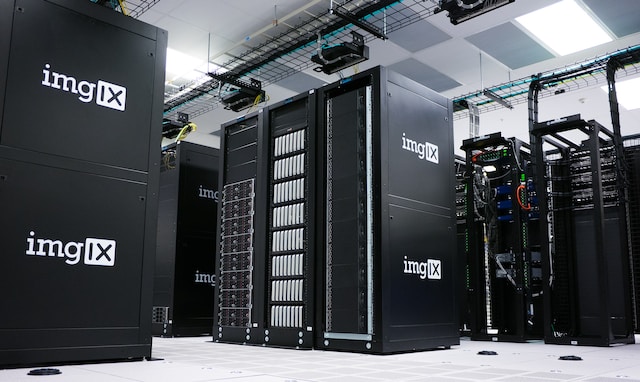Quantum Computing in 2025: Real-World Use Cases and What’s Next

Quantum computing is no longer just science fiction. In 2025, it has become a reality. Many businesses and industries are now beginning to use it. But why is quantum computing so important? And how will it change the world? Let’s explore the real-world use cases and what lies ahead in its future.
What Is Quantum Computing?
Quantum computing is a revolutionary form of computing. It uses the principles of quantum mechanics to process data. Unlike traditional computers, which use bits as 0s and 1s, quantum computers use quantum bits or qubits. These qubits can be 0, 1, or both at the same time, thanks to a property called superposition. This makes quantum computers incredibly powerful for certain tasks.
Quantum computing is not here to replace classical computing. Instead, it is designed to solve problems that are too complex for traditional computers. These include optimization problems, simulations, and cryptography.
How Quantum Computing Works
Quantum mechanics powers the entire process of quantum computing. Beyond superposition, another phenomenon called entanglement allows qubits to be connected. Changes to one qubit can instantly affect others. This speeds up calculations and solves problems faster.
Though today’s quantum computers are still in their early stages, they show immense potential. In 2025, industries are increasingly adopting quantum technology for real-world applications.
Current Real-World Use Cases in 2025
Even though quantum computers are still experimental, some industries have already started using them. Let’s look at a few of these real-world applications.
1. Drug Discovery and Healthcare
Developing new medicines is a long and expensive process. Quantum computers can simulate molecules and chemical reactions at a highly detailed level. This speeds up drug discovery. Pharmaceutical companies save billions of dollars and find cures faster.
In 2025, quantum computing is helping fight diseases like cancer and Alzheimer’s. It is also used to model personalized treatment plans for patients based on their genetic makeup.
2. Climate Change and Weather Predictions
Climate change is one of the biggest challenges of our time. Accurate weather prediction and climate modeling are crucial to tackling it. Quantum computing can analyze massive datasets quickly. It creates better models for weather forecasting and predicts natural disasters earlier.
In 2025, quantum computers are also helping in finding solutions for renewable energy optimization and carbon capture technologies. This accelerates sustainable development.
3. Finance and Risk Management
Banks and financial institutions deal with highly complex problems like portfolio optimization and risk assessment. Traditional computers often take days to process such tasks. Quantum computing can do it much faster.
As of 2025, many banks are using quantum algorithms. They analyze fraud, improve trading strategies, and minimize financial losses. Financial technology companies are also adopting quantum systems to innovate new services.
4. Logistics and Supply Chain
Global supply chain management is a daunting task. Companies face challenges in transportation, storage, and delivery optimization. Quantum computing helps solve these issues. It calculates the best routes and ensures resources are used efficiently.
In 2025, firms like Amazon and DHL are leveraging quantum systems. Quantum algorithms help reduce delivery times and costs, ensuring smoother operations worldwide.
5. Artificial Intelligence and Machine Learning
Artificial intelligence (AI) depends on processing massive amounts of data. Training AI models takes a lot of time and computing power. Quantum computing accelerates this process by analyzing datasets quickly.
In 2025, industries are using quantum-enhanced AI for advanced applications. Quantum-driven AI is helping identify financial fraud, improve customer service, and enhance autonomous vehicles.
6. Cybersecurity and Cryptography
Data security is critical in today’s world. Quantum computers can break traditional cryptographic methods, but they also offer advanced solutions. Post-quantum cryptography is being developed to secure data against quantum threats.
In 2025, governments and private companies are adopting quantum-safe encryption. They aim to protect sensitive information from being hacked by quantum systems.
The Challenges of Quantum Computing
While quantum computing has many advantages, it also has challenges. These include cost, scalability, and error correction.
- Expensive Hardware: Quantum computers need specialized technology, such as ultra-cold temperatures, to function. This makes them costly to build and maintain.
- Error Rates: Quantum systems are prone to errors caused by environmental noise and instability. Scientists in 2025 are working on improving quantum error correction.
- Limited Qubit Counts: Today’s machines still have a low number of qubits. This limits their capability to solve real-world problems at scale.
- Lack of Skilled Professionals: As of 2025, the demand for quantum scientists and engineers exceeds the supply. Education systems need to catch up to fill this skills gap.
Despite these challenges, progress in the field continues at a rapid pace.
What’s Next for Quantum Computing?
The future of quantum computing looks bright. As we move beyond 2025, quantum systems will become more advanced and accessible. Here’s what’s on the horizon:
1. Increased Qubit Counts
Future quantum computers will have thousands or even millions of qubits. This will allow them to tackle problems far beyond our current capabilities.
2. Commercial Availability
Quantum-as-a-Service (QaaS) platforms, provided by companies like IBM and Google, are making quantum computing more accessible. By 2030, businesses of all sizes could adopt these services.
3. Integration with Classical Computing
Hybrid systems combining classical and quantum processors will become common. This ensures seamless computing for a wide range of applications.
4. Global Collaboration
Countries and companies are investing heavily in quantum research. Collaborative efforts will help overcome technical challenges and drive innovation.
Major Players in Quantum Computing
Leading companies are driving the quantum revolution. In 2025, some of the biggest names include:
- IBM: Known for its IBM Quantum Network, offering cloud access to quantum resources.
- Google: Achieved quantum supremacy with its Sycamore processor.
- Microsoft: Developing scalable quantum systems via its Azure Quantum platform.
- Amazon: Entered the scene with AWS Braket, a cloud-based quantum service.
- Rigetti Computing: Known for its focus on hybrid quantum-classical computing.
These companies are shaping the quantum industry, pushing boundaries, and solving complex problems.
How Businesses Can Prepare
Quantum computing isn’t just for tech giants. Businesses across all sectors should start preparing:
- Learn the basics of quantum computing and its potential applications.
- Partner with quantum providers and research institutions.
- Begin experimenting with pilot projects to explore how it can solve your organization’s challenges.
- Stay informed about advancements, as they happen quickly.
Early adoption can offer companies a competitive edge in the coming years.
Conclusion
Quantum computing has moved out of the lab and into the real world. By 2025, industries like healthcare, finance, and logistics are already benefiting from its immense power. Although challenges remain, quantum computing’s potential to change the world is undeniable.
As we look to the future, one thing is clear: quantum computing will redefine how we solve problems. Businesses and governments must embrace this shift and get ready for the quantum era. The journey is just beginning, and the possibilities are endless.




